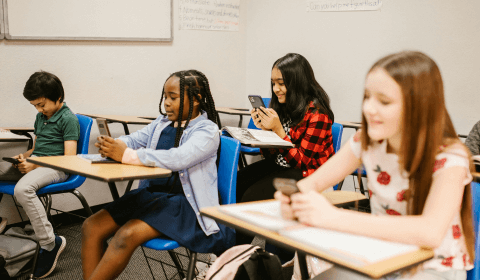It’s no secret that social media is a place where our sense of self-worth comes to die. So as policymakers in the United States strive to enforce safety measures for children in these spaces, are adults being wrongly left out of the equation?
Public awareness of the dangers posed by social media has grown exponentially over the last decade, with people of all ages and genders reporting negative mental health symptoms after its prolonged use.
Despite this, legal online protection measures have been slow to develop, especially in the US, where the impact of social media on American children is often at the forefront of the conversation.
Facing doubts about implementation and enforcement at every turn, the government’s most powerful proposal for digital protection to date has been the Kids Online Safety Act (KOSA), which is expected to be voted on in Capitol Hill soon.
In short, this bill would grant parents of anyone under the age of 17 additional tools to manage their kid’s experience online, while extending opportunities to strengthen their digital privacy. However, the bill does not address these issues for anyone over the age of 18.
Having a non-digital, hands-on hobby (woodworking, drawing, sewing, knitting) can be great for your mental health. Social media is destroying these hobbies by persuading people that making things is only worthwhile if they look good on camera and bring clout. https://t.co/3A4SdOTEJq
— Icona 📚 (@iconawrites) June 15, 2024
Although most people will heed that platforms like Instagram and TikTok help facilitate social connections, psychological research suggests that the superficial and meaningless nature of social media engagement can increase feelings of loneliness due to a lack of depth and intimacy offered alternatively by face-to-face interactions.
It’s also known that a simple scroll on these platforms – which are rife with photoshopped images and only the highlight reels of everyone’s lives – is a breeding ground for negative self-image, anxiety, and depression.
When 89 percent of Americans believe social media is damaging their mental health, it’s no wonder that adults in the US are concerned that protective measures aimed only at young people won’t be enough to stifle the mental health crisis ensuing across the nation.




















